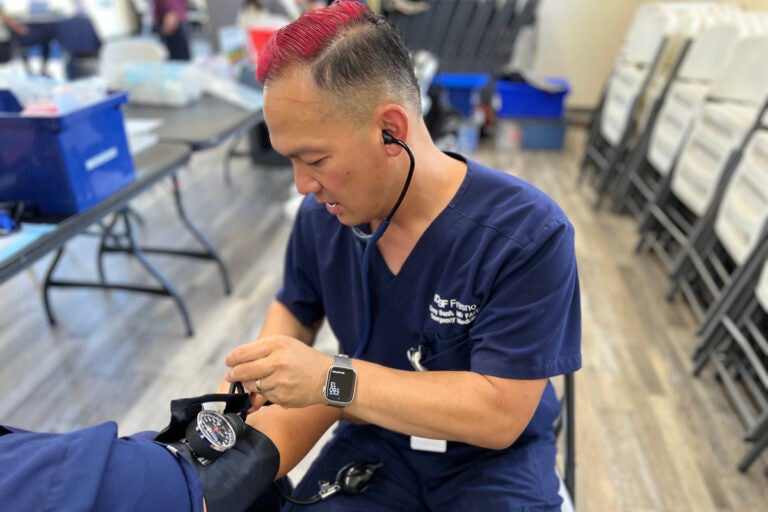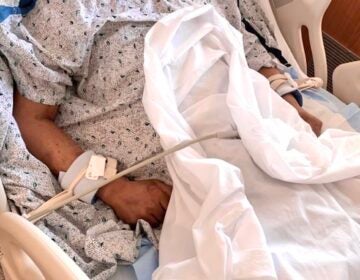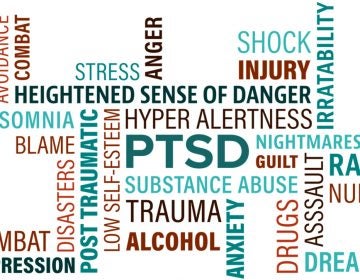Amid fears of ICE raids, one California doctor is meeting farmworkers where they are
Mobile HeaL brings health care directly to farm workers and trains physicians in Fresno County.
Listen 08:33
Emergency medicine physician Kenny Banh measures a patient’s blood pressure. (Courtesy of UCSF Fresno)
This story is from The Pulse, a weekly health and science podcast. Subscribe on Apple Podcasts, Spotify, or wherever you get your podcasts.
Find our full episode on farming here.
In 2018, when emergency medicine physician Kenny Banh created the University of California San Francisco Fresno’s Mobile Health and Learning clinic, or Mobile HeaL, he initially saw it as a “feel good” project to give back to Fresno County. It’s a rural part of Central California with a large immigrant farm worker population.
“I joked that I’m, basically, giving out jeans out of the back of a van when I started,” said Banh. But instead of jeans, he was giving away vaccines, prescriptions, and medical advice. After collecting a few donated ambulances and medical supplies, Bahn said he was ready to provide health care for communities with the least amount of access.
In 2020, Banh’s urgent care clinic on wheels met the moment during the COVID-19 pandemic providing testing and later vaccines. “I did not realize that I was going to be this public health response unit for the whole region. People were coming out of the county because we were the only ones doing it and driving all over to do that,” said Banh. The free clinic has since served more than 200,000 patients in Fresno County at no cost to patients.
Part of Mobile HeaL’s mission is to bring care directly to farm workers, and to train physicians who know the area and its people. California’s Central Valley grows over 360 different agricultural products, and these workers are crucial to the agriculture business. The region is also experiencing a physician shortage, and Banh is using Mobile HeaL as a training ground for doctors. Doctors who are living in the same community as their patients.
The mobile clinic team pulls up to places that are frequented by farm workers, like a parking lot outside of a popular Mexican bakery. Patients can access the same kinds of services they would get during a primary care visit. Many of them have not seen a doctor in years.
But now, with fears of deportation and raids from the U.S. Immigration and Customs Enforcement, Banh says workers are thinking twice before seeking health care.
“We have a large undocumented population here. And in today’s world they fear access to care. This is the reality,” said Banh.
Recently, agents from ICE have begun raiding the open spaces where many undocumented immigrant workers gather like Home Depots, taco stands and farms. The region is also home to a lot of Trump voters, who support tighter immigration laws, and deportation. Banh gets stuck in the political crosshairs, but he makes the argument that providing health care is vital to running a business.
“It’s good for the people and it’s good for your own industry and it’s good for the region. You don’t know the number of times I’ve talked to ag workers about farm worker health, like, ‘how many workers do you turn over every year? How many people call in sick? What’s your no-show rate?’”
This past year, the Trump administration cut one of Mobile HeaL’s grants. Banh had to let go of a large portion of his staff. But he’s been here before. Back when he started the clinic before the pandemic, the operation was small, and he was able to raise enough grant money to expand. Which is what he believes he’ll be able to do again.
This story was reported as part of our project on health challenges facing Latino communities and supported by The Commonwealth Fund.
Subscribe to The Pulse
WHYY is your source for fact-based, in-depth journalism and information. As a nonprofit organization, we rely on financial support from readers like you. Please give today.






